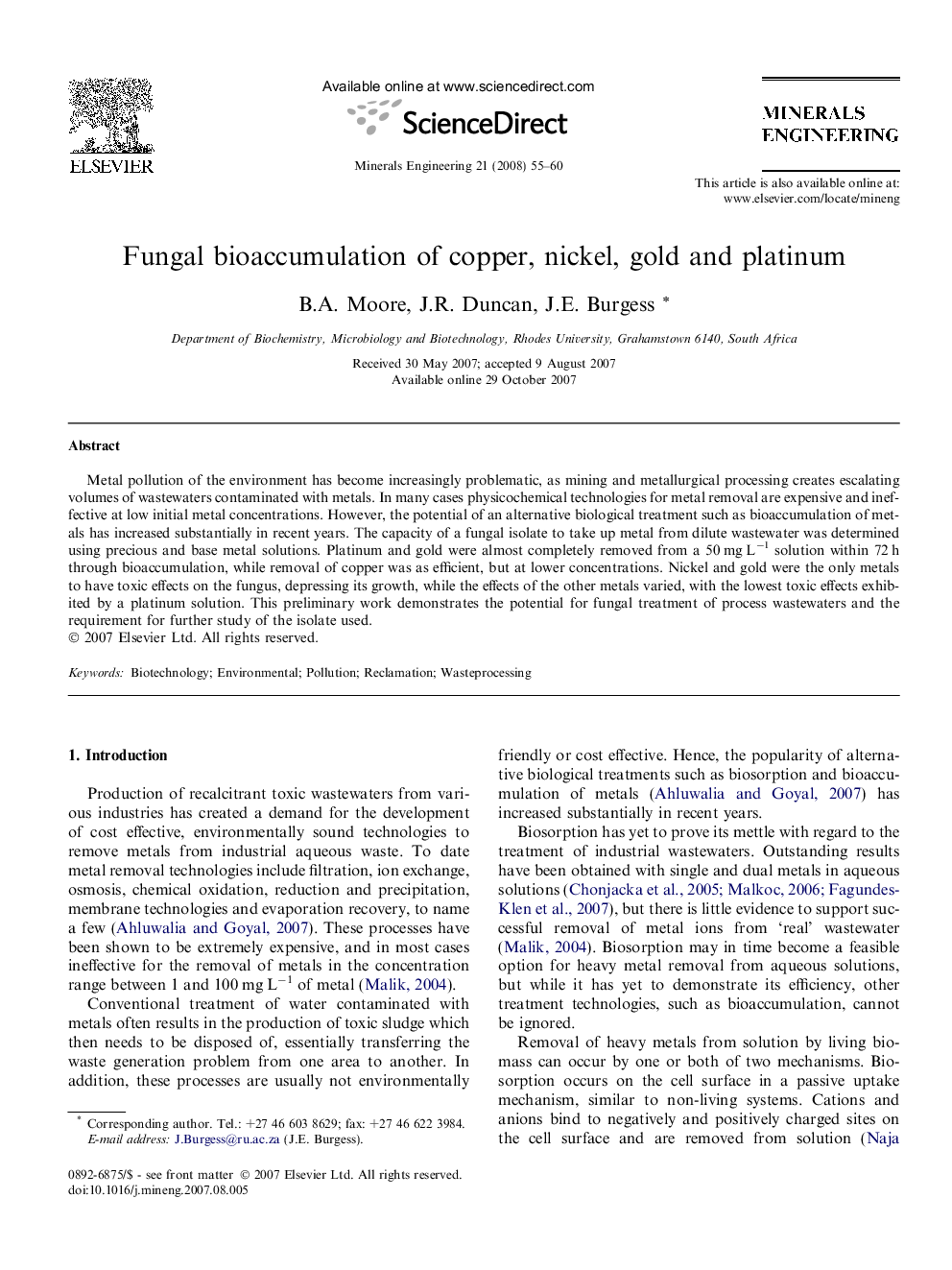| Article ID | Journal | Published Year | Pages | File Type |
|---|---|---|---|---|
| 234177 | Minerals Engineering | 2008 | 6 Pages |
Metal pollution of the environment has become increasingly problematic, as mining and metallurgical processing creates escalating volumes of wastewaters contaminated with metals. In many cases physicochemical technologies for metal removal are expensive and ineffective at low initial metal concentrations. However, the potential of an alternative biological treatment such as bioaccumulation of metals has increased substantially in recent years. The capacity of a fungal isolate to take up metal from dilute wastewater was determined using precious and base metal solutions. Platinum and gold were almost completely removed from a 50 mg L−1 solution within 72 h through bioaccumulation, while removal of copper was as efficient, but at lower concentrations. Nickel and gold were the only metals to have toxic effects on the fungus, depressing its growth, while the effects of the other metals varied, with the lowest toxic effects exhibited by a platinum solution. This preliminary work demonstrates the potential for fungal treatment of process wastewaters and the requirement for further study of the isolate used.
